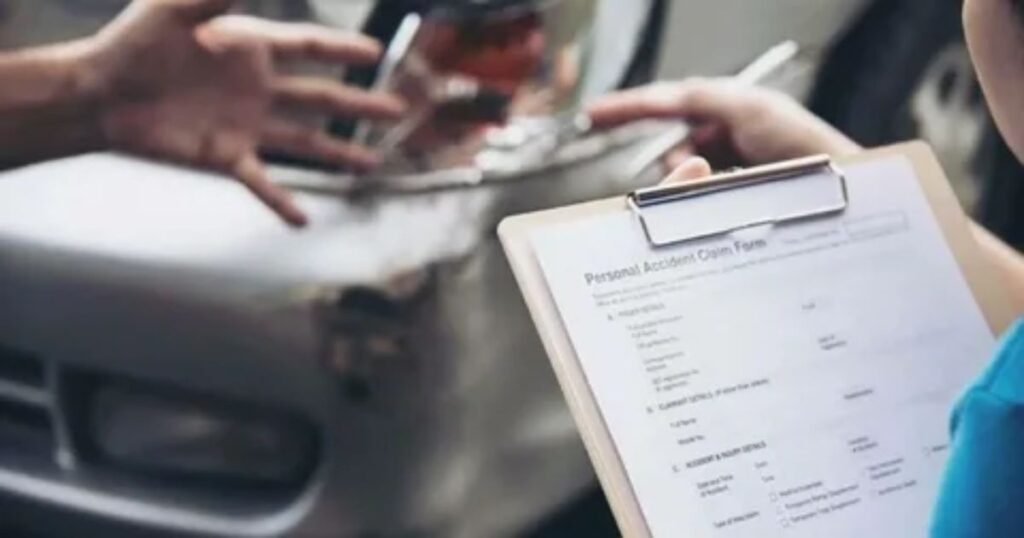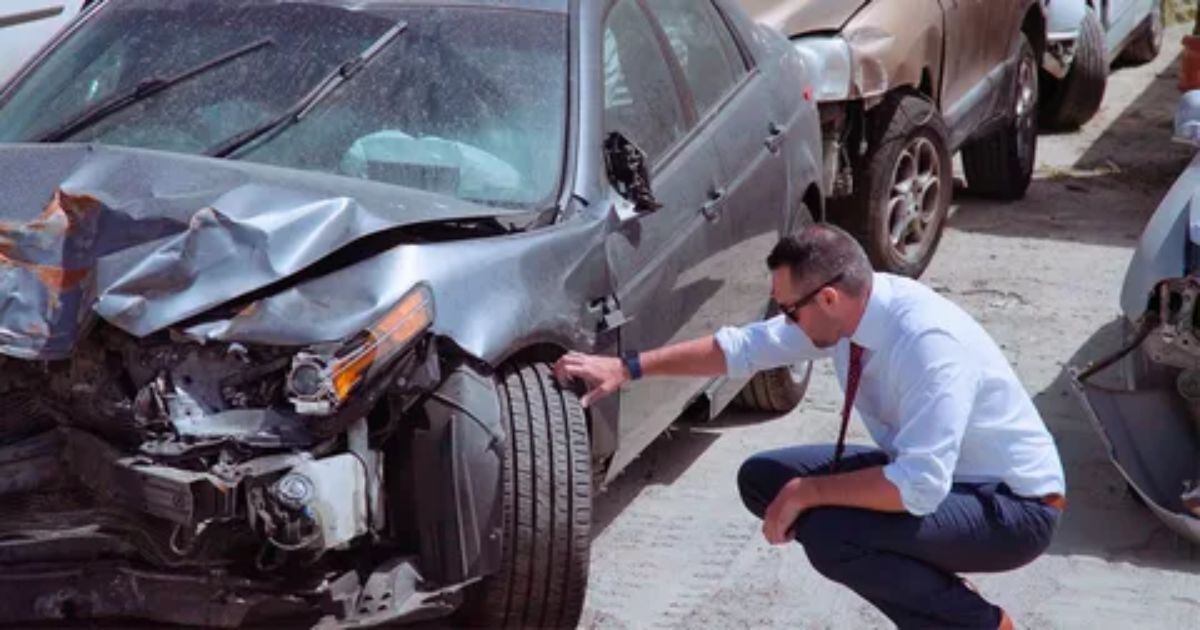Auto accidents can be overwhelming, both physically and emotionally. When you find yourself in such a situation, handling the claims process without legal representation might seem daunting. However, many people successfully settle their auto accident claims without a lawyer, saving time and money in the process.
Settling an auto accident claim on your own requires a good understanding of the process and a bit of patience. By educating yourself about the steps involved, you can confidently negotiate with insurance companies and secure a fair settlement. This article will guide you through the essential steps needed to settle your auto accident claim without legal help. Inform your insurance company about the accident as soon as possible. Provide them with all the necessary details and documentation.
Be honest and accurate in your description but avoid speculating or admitting fault. Company will cover every damages with insurance claims and finalizing the settlement. By the end of this article, you’ll have a clear roadmap to follow, enabling you to handle your auto accident claim effectively on your own. Before negotiating a settlement, understand your insurance policy thoroughly. Know the coverage limits, deductibles, and specific terms related to accident claims.
Understanding The Auto Accident Claim Process
Gathering Evidence
Document the Scene: Take photos of the accident scene, vehicle damages, and any visible injuries.
Collect Contact Information: Obtain contact details from all parties involved, including witnesses.
Police Report: Ensure you get a copy of the police report as it contains crucial details about the accident.
Evidence is the backbone of any auto accident claim. Immediately after the accident, it’s essential to gather as much information as possible. Start by documenting the scene with photographs and videos from different angles. This visual evidence can be crucial in establishing fault and the extent of the damage.
Additionally, collect contact information from all parties involved, including witnesses. Their statements can provide valuable third-party perspectives on the incident. Don’t forget to get a copy of the police report, which will include an official account of the accident and may help in proving liability.
Calculating Damages
- Medical Expenses: Keep records of all medical treatments, prescriptions, and rehabilitation costs.
- Property Damage: Get repair estimates from multiple sources to establish the cost of vehicle repairs.
- Lost Wages: Document any time off work due to the accident and calculate the lost income.
Accurately calculating your damages is critical for negotiating a fair settlement. Start with medical expenses, including hospital bills, prescription costs, and any ongoing treatment or rehabilitation. Keeping detailed records of these expenses will provide a clear picture of your financial losses.
Next, assess the property damage. Obtain repair estimates from multiple auto shops to determine the cost of fixing your vehicle. Additionally, if the accident has caused you to miss work, document the days missed and calculate the lost wages. This comprehensive calculation of damages will form the basis of your settlement demand.
Communicating with Insurance Companies

Filing A Claim
Notify Your Insurer: Report the accident to your insurance company as soon as possible.
Provide Necessary Documentation: Submit all required documents, including the police report, medical records, and repair estimates.
Stay Consistent: Ensure that all your statements are consistent and accurate.
The first step in the claims process is notifying your insurance company about the accident. It’s crucial to do this promptly, as delaying could affect the processing of your claim. When filing the claim, provide all necessary documentation, such as the police report, medical records, and repair estimates.
Consistency is key when communicating with insurance companies. Ensure that your statements about the accident are accurate and consistent across all communications. Any discrepancies can be used against you to reduce the settlement amount.
Negotiating with Adjusters

Initial Offer: Understand that the first offer from the insurance adjuster is typically low.
Counter Offer: Prepare a well-documented counter offer based on your calculated damages.
Be Firm but Polite: Maintain a firm stance on your demand while remaining polite and professional.
Insurance adjusters are trained to minimize payouts, so the initial settlement offer will likely be lower than what you deserve. It’s essential to remain patient and not rush into accepting the first offer. Evaluate the offer against your calculated damages and prepare a counter offer.
When presenting your counter offer, be firm but polite. Provide all the documentation that supports your demand and clearly explain why the initial offer is inadequate. Professionalism in these negotiations can go a long way in securing a fair settlement.
Settling The Claim
Carefully read the settlement agreement to ensure all terms are clear. Verify that the settlement amount and details match your agreement. If any terms are unclear, consider consulting a legal expert for clarification. Once a settlement amount is agreed upon, the insurance company will provide a settlement agreement. It’s crucial to read this document thoroughly before signing.
Ensure that all the terms are clear and that the settlement amount matches what was agreed upon. Carefully check for any errors or discrepancies in the document. If you have any doubts or questions, don’t hesitate to seek clarification. While handling the claim without a lawyer, you can still consult a legal expert for a quick review to ensure your rights are protected.
Finalizing The Settlement
Once satisfied with the terms, sign the settlement agreement.Ensure that you receive the payment within the agreed timeframe.Confirm with your insurer that the claim is officially closed after receiving payment.After reviewing and agreeing to the settlement terms, you can sign the agreement to finalize the process. Ensure that you keep a copy of the signed agreement for your records.
The insurance company will then process the payment. Make sure that the payment is received within the agreed timeframe. Once the payment is received, confirm with your insurer that the claim is officially closed. This confirmation will provide closure and ensure that there are no outstanding issues related to the claim.
Common Challenges And How To Overcome Them

Stay Informed: Know the fair value of your claim based on your damages.
Provide Evidence: Back up your counter offer with solid evidence and documentation.
Seek Mediation: If negotiations stall, consider mediation as a neutral ground for resolving disputes.
Lowball offers are common in the claims process, but they can be frustrating. Staying informed about the fair value of your claim is crucial. Use your detailed documentation to support your counter offer and demonstrate the validity of your claim.
If negotiations reach an impasse, mediation can be an effective way to resolve the dispute. Mediation involves a neutral third party who can help both sides reach a mutually agreeable settlement. This can be a cost-effective alternative to hiring a lawyer or going to court.
Handling Denied Claims
Get a clear explanation of why your claim was denied. Collect any missing or additional evidence to support your claim. Follow the insurance company’s appeals process to challenge the denial. A denied claim can be disheartening, but it’s not the end of the road. First, understand the reason behind the denial. Insurance companies are required to provide an explanation.
so request a detailed account of why your claim was rejected. Once you understand the reason gather any additional evidence that can address the insurer’s concerns. This might include more detailed medical records, additional witness statements, or further repair estimates. Finally, follow the insurer’s appeals process to challenge the denial and present your case for reconsideration.
Frequently Asked Questions
How Long Does It Take To Settle An Auto Accident Claim Without A Lawyer?
The timeline can vary, but it typically takes a few weeks to a few months, depending on the complexity of the case and the responsiveness of the insurance company.
Can I Negotiate A Settlement If I Was Partially At Fault For The Accident?
Yes, you can still negotiate a settlement. However, the settlement amount may be reduced based on the degree of fault assigned to you.
What Should I Do If The Insurance Company Refuses To Settle?
If negotiations fail, you can consider mediation or arbitration as alternatives to hiring a lawyer. These methods can help resolve disputes without going to court.
Do I Need To Inform My Insurance Company If I Settle Directly With The Other Driver?
Yes, it’s essential to inform your insurance company of any settlements, as failing to do so can violate your policy terms and affect future claims.
Conclusion
Settling an auto accident claim without a lawyer is entirely possible with the right knowledge and approach. By gathering comprehensive evidence, accurately calculating your damages, and effectively negotiating with insurance companies, you can secure a fair settlement on your own. Get a clear explanation of why your claim was denied. Collect any missing or additional evidence to support your claim. Follow the insurance company’s appeals process to challenge the denial.
Remember to remain patient and persistent throughout the process. Clear communication and thorough documentation are your best allies. you can confidently handle your auto accident claim and achieve a satisfactory resolution. If negotiations reach an impasse, mediation can be an effective way to resolve the dispute. Mediation involves a neutral third party who can help both sides and make a agreeable settlement. This can be a effective alternative to hiring a lawyer or going to court.
